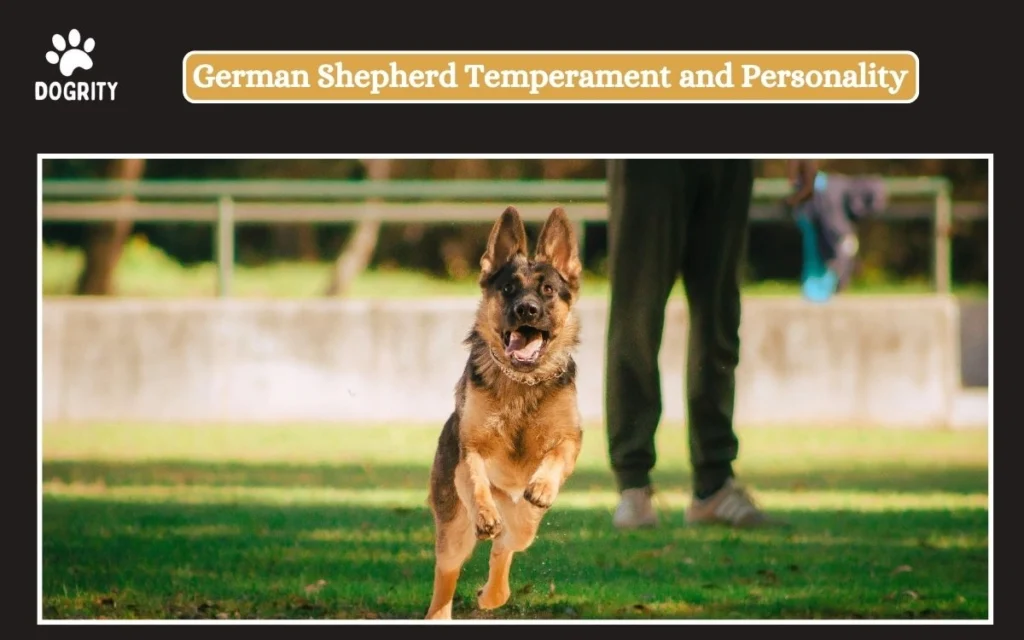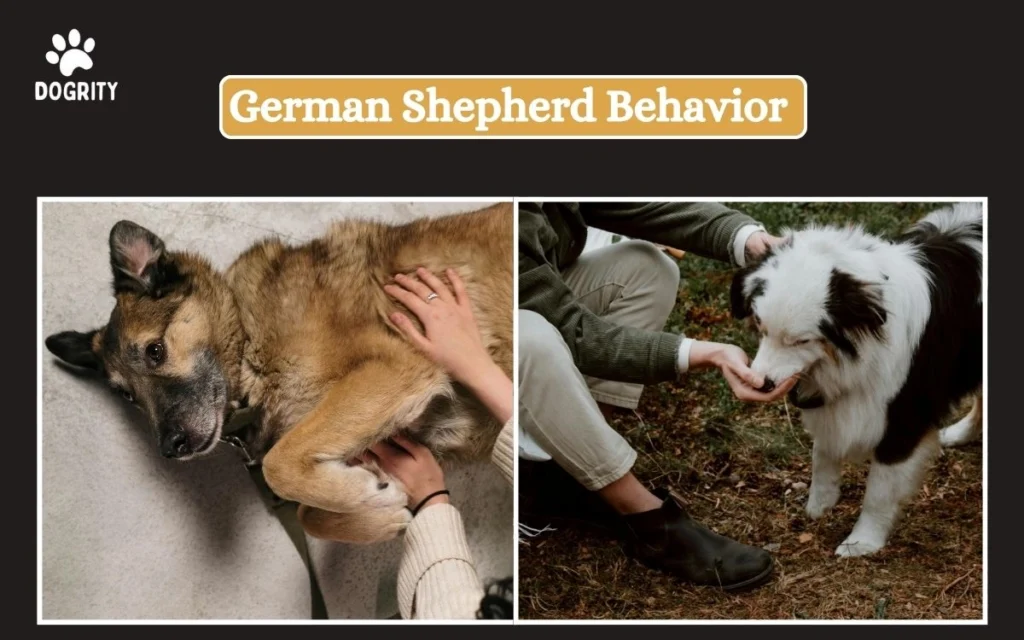Understanding German Shepherd Behavior
One of the popular breeds of dogs, German Shepherds are loyal, smart, and versatile. If it’s your first-time dog or you’ve had other breeds in the past, knowing the behavior of a German Shepherd is very important in developing a healthy and solid relationship with your furry companion.
Having grown up with one myself, I can confidently say that they are one of the most unique dogs there are. Let’s go ahead and discuss the different stages of German Shepherd behavior, common challenges you might come across, and characteristics which make them the ideal companion for many families.
German Shepherd Behavior Stages
Every breed of dog goes through several behavioral changes throughout their life. From a playful puppy to adult maturity, behavior changes and so do the problems that may occur in training and pet care.
Puppy Stage (0-6 months)
At this age, German shepherd puppies are full of curiosity and energy. They like to check their surroundings, which sometimes can lead to the destructive condition. In my case, my 6-month-old German shepherd was really mischievous; used to chew furniture and always test the barriers. Therefore, at this age, they require a lot of reinforcement and consistent training of what is acceptable and what is not.
Adolescent Stage (6-18 months)
The German Shepherds become a little independent around the 8-month period. I began noticing that my German Shepherd started pushing for more control and getting a bit too stubborn during this time. Still, they can be well-managed with proper guidance.
Adult Stage (2-5 years)
As they grow into adult dogs, you will get to see their actual temperament. These dogs would have to be well-socialized and trained by that time but the territorial guarding or protection is still shown.
German Shepherd Temperament and Personality

The temperament that a German Shepherd has makes this breed unique from others. Known for loyalty, intelligence, and being protective, German Shepherds are often used in police work and military roles as well as search-and-rescue missions, but there is more to this breed’s personality than what they can work on using their physical capabilities.
Loyalty
German Shepherds are very attached to their families. This I have found firsthand; they are very attached to the owners, especially if they turn out to be protectors, though at times, it shows up as separation anxiety if the dog is left behind for too long.
Intelligence
One of the most dazzling features of a German Shepherd is their intelligence. German Shepherds are highly trainable and, for this reason, become the favorite among owners willing to take time training them. I always valued how quickly my dog could learn new commands.
Protectiveness
Their instinctive love for guarding makes them a rather distinctive feature. The German Shepherd would always watch out for anyone who goes near our house. On one hand, this makes them excellent watchdogs, but sometimes it leads them to the path of behavioral disorders such as aggression towards strangers, considering they haven’t been socialized enough.
Common German Shepherd Behavior Problems
Although German Shepherds boast many wonderful qualities, at some stage they will all develop behavioral problems, especially in the case of not well-trained ones. Here are a few common behavioral problems you might encounter:
Aggression
Just like any breed of dog, if German Shepherds are not socialized properly, they tend to become aggressive. My dog was not an exception; he became overly protective of his self and very aggressive toward strangers. We were able to get through that phase with consistent training and socialization, but it is just one thing all owners have to prepare for.
Separation Anxiety
German Shepherds are extremely attached to their owners, and sometimes they develop separation anxiety, especially if they are left for a long period of time. Such a dog can whine or engage in destructive behavior, and accidents in the house can also be manifestations of anxiety. Then, you have to get behavioral training to help your German Shepherd overcome that anxious behavior as soon as possible.
Excessive Barking or Whining
German Shepherds tend to be very talkative and while this is most of the time a sign that the dog is alert or trying to communicate, sometimes it can become a real problem if the dog feels neglected or anxious. If you ever wanted to know Why is my German Shepherd whining? It might simply be due to boredom or attention-seeking.
German Shepherd Behavior Training

Real help in the management of a German Shepherd comes in the proper training of their behavior. Indeed, German Shepherds are so intelligent and easily pleased, but they also need such strict leadership and consistency. The following is some advice on the best method of training:
Start Early
Training is to begin at the age of 6 months, for it is then that the German Shepherd is amazingly malleable. The basic commands of “sit,” “stay,” and “come” are also to be learned early.
Use Positive Reinforcement
Positive reinforcement tends to work pretty well with German Shepherds, and rewarding good behavior with treats or praise should keep motivating them to repeat those actions.
Socialization
Exposure to various environments, people, and other dogs should be experienced by your German Shepherd. This would be done during the early stages of development so that behavioral issues will not be within their capability for development later on.
The German Shepherd’s Unique Traits and Characteristics
From their striking look to having impressive work ethic, there are plenty of great qualities of German Shepherds that set them out from everyone else:
Size and Strength
German Shepherds are those animals known to possess strong bodies, medium to large dogs that are robust. Their robust bodies set them up for stamina- and endurance-based roles in the security world.
Loyalty and Protection
As mentioned earlier, loyalty is one of the basic defining characteristics of the breed. A German Shepherd guards his home as a home guard or as a bodyguard.
High Energy Levels
Those dogs require enough physical and mental stimulation; otherwise, boredom sets in, leading to either chewing or digging.
Belgian Malinois vs German Shepherd Behavior
The Belgian Malinois is like the German Shepherd in looks as well as in its working purposes, but as far as temperament goes, there is a little difference between the two breeds. The German Shepherd seems to be more family-oriented as well as protective. It seems the Belgian Malinois is more energetic and independent, and both breeds are outstanding when it comes to work, but the German Shepherd’s family life seems better suited because of its laid-back nature.
Conclusion
Living with German Shepherds is really rewarding yet challenging, as a true commitment to training, exercising, and taking care of them is expected of you, but the bond that you will have with them is one of the best you can experience with your pet. Sigh. really not easy when there are behavioral issues or when trying to understand their peculiar temperament. Never forget to be patient, consistent, and loving.
I have experienced that owning a German Shepherd is the most rewarding experience. They are an unbeatable breed, which exhibits loyalty, intelligence, and protection characteristics. Properly trained and given attention, they make fantastic companions for many years ahead.







